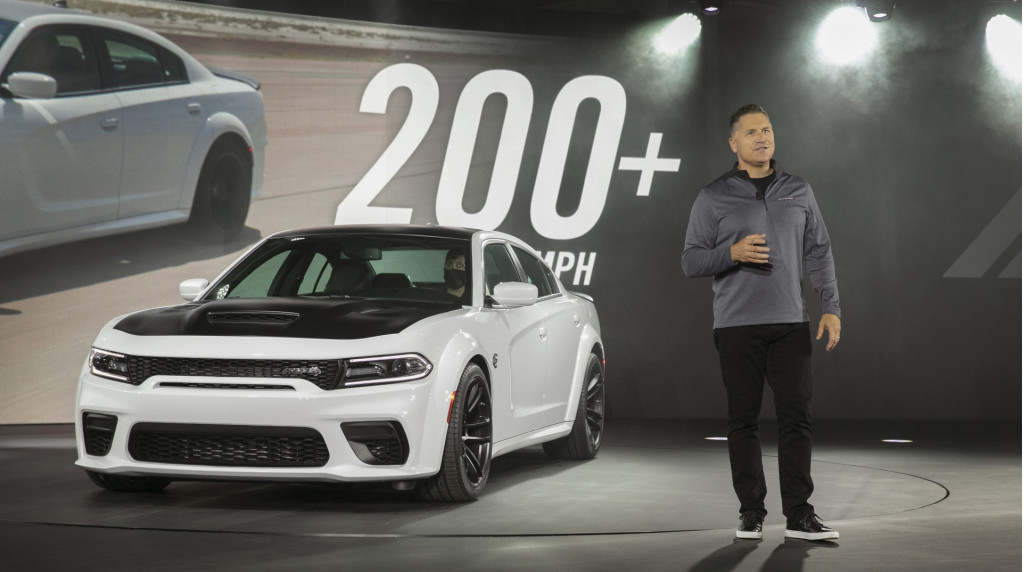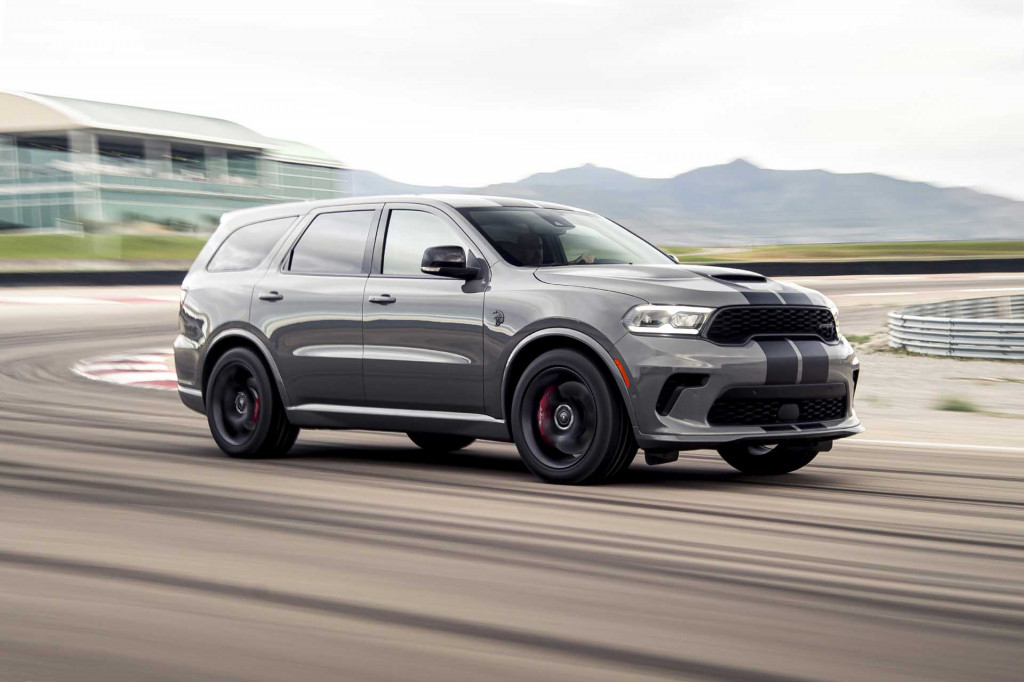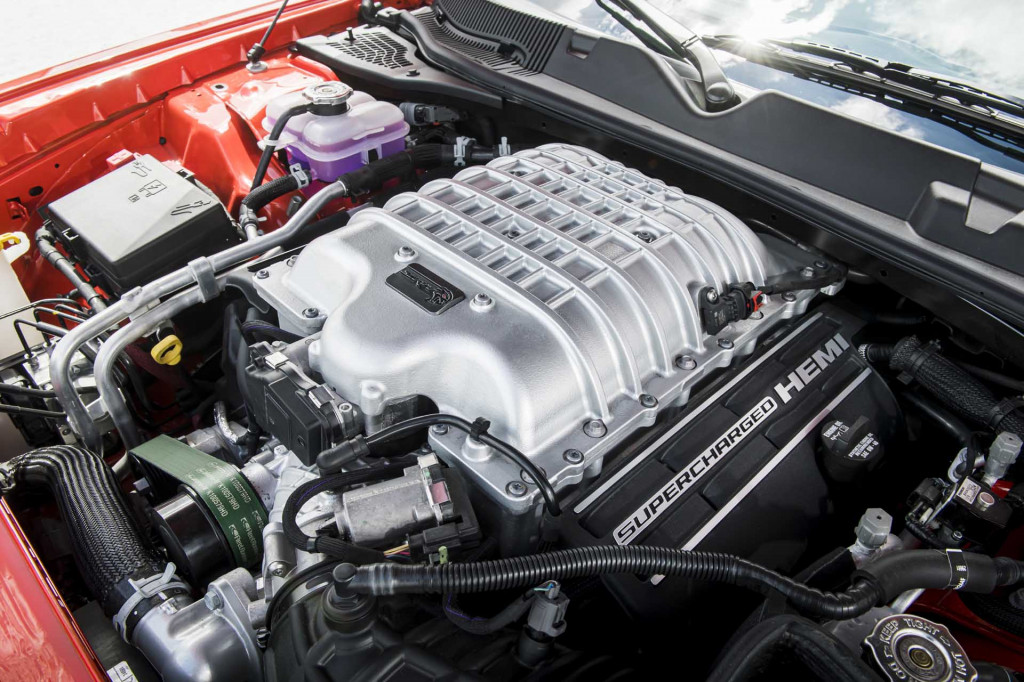The days of the big and burly V-8 could soon be over, judging by recent comments made by Dodge CEO Tim Kuniskis.
In an interview with CNBC published last week, Kuniskis said the days of supercharged V-8s like Dodge’s Hellcat engines are numbered, but thanks to electrification the type of performance the engines deliver is here to stay—and likely to improve. Just look at the crazy numbers Tesla’s new Model S Plaid+ promises.

Tim Kuniskis
The demise of the Hellcat engines won’t be because the market is demanding it, though. Despite being more than a decade old, Dodge’s Challenger and Charger continue to sell at near record levels, including the Hellcat models which have racked up “well over” 50,000 sales in the past five years, according to Kuniskis.
Rather, he blamed compliance costs as the reason for the eventual demise of the engines, particularly the need to modify them to meet the latest emissions regulations. We’ve already started to see this with the 2021 Dodge Durango SRT Hellcat, which will be phased out shortly since its engine won’t meet new EVAP emissions requirements for the 2022 model year in the Durango’s platform.

2021 Dodge Durango SRT Hellcat
In his interview with CNBC, Kuniskis said electrification, which covers both hybrids and battery-electric vehicles, will keep the performance dream alive, and he expects the price to come down as the technology becomes more mainstream. He also said Dodge will stick to its focus of “American muscle” under the ownership of new parent Stellantis.
“The whole world is going to shift to electrification,” he said. “The whole world’s going (to) get there and when it does, the price point of that technology is going to come down.”

2021 Dodge Challenger
It’s not the first time that we’ve heard of Dodge going the electrification route. Mike Manley as CEO of Fiat Chrysler Automobiles (he’s now head of Stellantis North America) hinted in 2019 at downsized engines aided by electrification for the next Challenger and Charger. Stellantis CEO Carlos Tavares has also said that all new models the company launches will feature some form of electrification.
If you still have gasoline in your veins, you probably won’t like to hear that internal-combustion engines could be phased out altogether in little more than a decade. Some countries are committed to banning the sale of non-electrified vehicles as early as 2030, and General Motors just last week said it has a goal of eliminating internal-combustion engines from all of its light-duty vehicles (cars, SUVs and trucks) by 2035.
